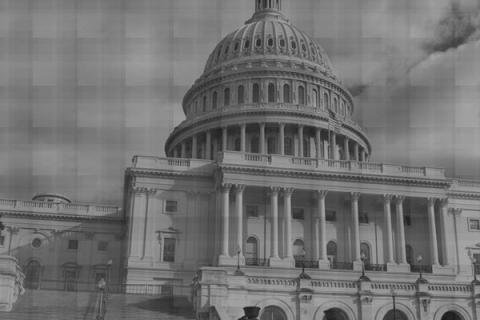GM’s record earnings announced just ahead of the Michigan GOP primary have put Republicans in general and Mitt Romney in particular in a political bind. Romney famously opposed the GM and Chrysler bailouts saying that failing companies should be allowed to fail. In recent days, Romney has been forced to defend his view that the free market should have been allowed to work in the case of the U.S. auto industry. Meanwhile, President Obama is taking victory laps over the success of the government’s (taxpayers') infusion of capital that saved both GM and Chrysler from imminent bankruptcy.
This debate over government bailouts to save failing industries has rekindled discussion of whether the nation needs a so-called “industrial policy.” The president doubled down on the side of such a policy during the State of the Union address, proposing government incentives either to bring manufacturing jobs to the U.S. or keep them here.
Because it has become commonplace to bemoan the erosion of this nation’s manufacturing might, Obama’s pleas for more such jobs seems to have resonated positively with many Americans. But, the reality is that industrial policies have been tried before and have sometimes failed badly. The example most often cited is Japan, which threatened to overtake the U.S. in areas such as integrated circuit production and had become known as Japan, Inc. because of its government-supported industrial policy.
Writing in The Fiscal Times, economist Bruce Bartlett recalled:
“Even among Republicans there was admiration for the Japanese model. During the George H.W. Bush administration, where I worked in the Treasury Department, it had strong supporters at the Commerce and Defense departments.”
But Japan fell on hard times and is no longer the economic powerhouse that once struck fear in the hearts of American businesses. The fault for Japan’s problems may not be its industrial policy, but the fact remains that industrial policy was unable to prevent the implosion of the Japanese economy.
However, Dani Rodrick writes in Project Syndicate that industrial policies remain alive and well among worldwide economies:
“China is a case in point. Its phenomenal manufacturing prowess rests in large part on public assistance to new industries. State-owned enterprises have acted as incubators for technical skills and managerial talent. Local-content requirements have spawned productive supplier industries in automotive and electronics products. Generous export incentives have helped firms break into competitive global markets.”
Rodrick, a professor of international economics at Harvard University, says that the United States, despite its devotion to free markets, has relied heavily on aspects of industrial policy:
“US Department of Defense contracts played a crucial role in accelerating the early growth of Silicon Valley. The Internet, possibly the most significant innovation of our time, grew out of a Defense Department project initiated in 1969.”
That kind of government incentive continues even today, with massive Department of Energy grants for the development of renewable forms of power generation. But, Bartlett warns of the dangers of top-down decision making on free market issues. He cites the development of High Definition Television (HDTV) as an example of a push by Commerce to support a specific technology:
“Years later, one of the people at Commerce who supported subsidies for HDTV admitted to me that the technology that it wanted to support turned out to be inferior to that which ended up being the standard. It also turned out that the real money was not to be made manufacturing HDTV’s, but in producing the programming, an area where the U.S. remains dominant.”
Rodrick sees it differently:
“The standard rap against industrial policy is that governments cannot pick winners. Of course they can’t, but that is largely irrelevant. What determines success in industrial policy is not the ability to pick winners, but the capacity to let the losers go – a much less demanding requirement. Uncertainty ensures that even optimal policies will lead to mistakes. The trick is for governments to recognize those mistakes and withdraw support before they become too costly.”
As the United States economy recovers, it may become difficult to distinguish success that is purely free market driven from success that comes with a government nudge or two. The reality is that this country must compete with worldwide industries that have a multitude of government support programs and funding behind them. Can we afford to do less than fight fire with fire?

